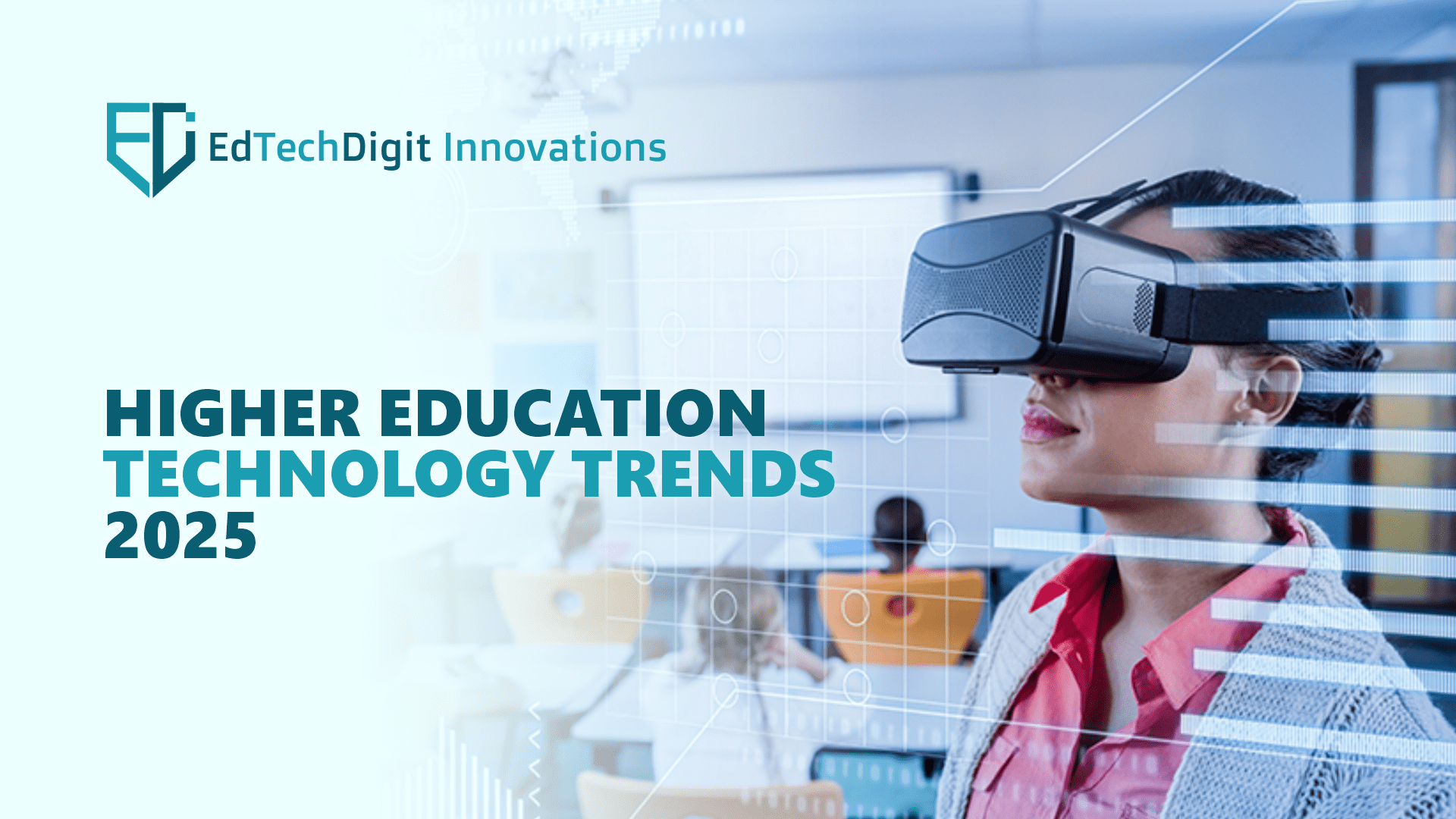
Understanding the rising tide of educational technology is key to leveraging greater results in teaching and learning. Artificial Intelligence is the way forward as the world explores massive capabilities with smarter AI technologies strengthening the chord between resourceful teaching and insightful learning. These tools are leveraging greater and lasting retention spans of the learners across ages. Diverse initiatives and policy implementations are en route to ensure higher education curriculum are built around student agency, competencies, and their well-being. This enables them to thrive and experience a better future that is majorly AI-driven.
Technology in higher education has undergone an elemental shift as regards the future outcomes of today’s education is concerned. Not just the education standards have risen manifold, it has put added pressure on teachers as well as learners to stay updated with the latest edtech and arm themselves with the core nuances.
The US had the most high-scoring edtech companies with 138, consisting of 39.4% of the overall list (time.com). In schools, higher education, and workplace learning; several Edtech trends are set to impact how we teach, learn, and connect in 2025. overtime the spans of education technology has outgrown the very notion of being confined to the classroom walls. A steep rise in the latest evolution in entrepreneurial practices, cultural environment, and student demographics call to question the long-established norm of matching college education with workplace demands. Let us unravel some of the diversely unique emerging trends in higher education that are expected to make their appearance in 2025 and are going to stay for the long term.
SOCIAL TRENDS:
1. Diversity in Higher Education
The greater the times evolve, learners of color become a significant part of the entire higher education clan. This calls for a tweak in the education delivery strategies that can easily be molded as per the learners’ demographics and suit their choices and needs.
2. Rise in Non-Traditional Students
The society has for long presumed college students to be teenagers or young adults who lived with or were supported by their parents to make ends meet. As the times change, people who were juggling a host of responsibilities- full-time employees, parents, caregivers, and retirees-joined colleges and universities to reskill and upskill. This has the clear potential of broadening the non-traditional students bracket over the years to follow as well.
3. Mental Health Awareness
There are many institutions that come up with innovative approaches, online resources, and creative programs to increase mental health awareness. Some institutions offer free mental health screenings to encourage students to monitor their mental health status and counter the stigma head-on.
TECHNOLOGICAL TRENDS:
4. Artificial Intelligence in Learning
Just as any other sector, AI is revolutionizing education sector big time. AI-powered lesson plan generators are transforming the way educators design courses, automating content creation, and ensuring alignment with curriculum standards. These tools allow instructors to focus on interactive teaching and student engagement rather than administrative tasks.
5. Hybrid and Online Learning Becoming Commonplace
Asynchronous learning, where students access recorded lectures and complete assignments on their own schedule is gaining massive traction. Hybrid learning allows students to combine traditional classroom experience with online coursework; creating a more adaptable education structure. Online learning in higher education has become the most convenient way to gain knowledge as the world grows more competitive with every passing day. Investing your time right is key to gaining big!
6. Virtual Reality in Education
The virtual reality in education market has grown exponentially so far; that promises to continue and reach USD 22.26 billion in 2025; growing at a CAGR of 38% (businessresearchcompany.com). by simulating immersive 3D environments, virtual eality pushes beyond the limitations of traditional classrooms, equipping educators and students with newer ways to grasp content.
HIGHER EDUCATION TECHNOLOGY FUTURE BEYOND 2025
- The advent of highly skill-centric curriculum
- Advanced experiential learning
- Upsurge in MOOCs (Massive Open Online Courses)
- Commitment to Sustainable education
- Advanced EdTech in Education
With these promising trends and scenarios to take place in the future of higher education technology; it is expected of all the learners as well as facilitators to upskill with times and stay relevant. Keeping an eye on the emerging trends and the latest educational tools is going to prepare you for the future of AI-led education and pave your way toward a hugely thriving career pathway with industry-relevant skills in place.
Sifting through these powerful trends in higher education; one can easily forecast the dire need to close the AI skill gap and empower yourself with the most essential AI technologies and skills to power your years beyond educational milestones. Make way for an enhanced landscape that offers astounding opportunities to the deserving future workforce. Start informed today!

